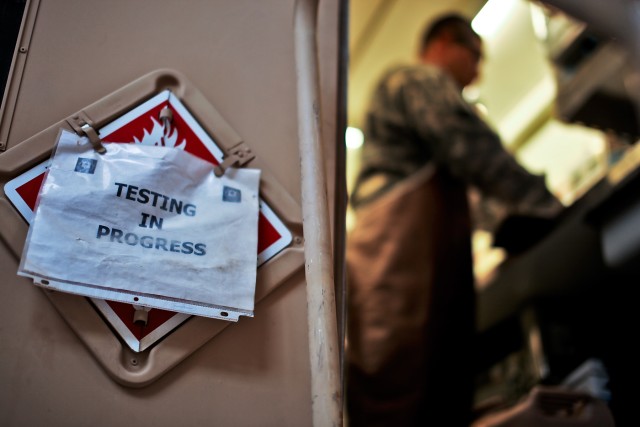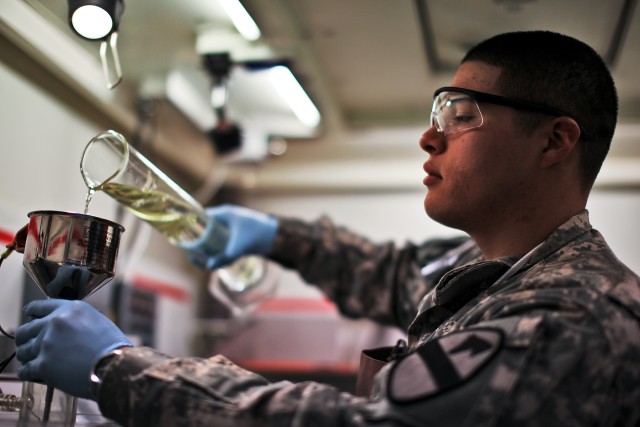CAMP TAJI, Iraq - In a mobile lab filled with graduated cylinders, beakers, filtration systems and various other tools - the life blood of military vehicles is tested.
The fuel sample tests performed by the petroleum specialists of the 615th Aviation Support Battalion, 1st Air Cavalry Brigade, 1st Cavalry Division, are an important step before the fuel is distributed for use.
The fuel lab is responsible for testing fuel used by the 1st ACB, the Iraqi Air Force and civilian contractors, here, and at Forward Operating Base Kalsu, said Sgt. Anthony Adame, from Lubbock, Texas, the noncommissioned officer in charge of the fuel lab.
"We average around five to seven samples a day; on peak days we have gone as high as 16 samples," said Adame.
Spending an average of two hours for each sample, Spc. Juan Rodriguez-Cano, from Edinburg, Texas, a petroleum lab technician, will run one gallon of fuel through different instruments to determine its quality.
"We test all types of fuel, anything from ground fuel to aviation-type fuel," said Rodriguez-Cano.
The fuel sample requires multiple tests such as checking for contaminates, water and sediments. The fuel's flash point is tested - the temperature at which the fuel ignites - and the density of it is also tested to be sure it is the correct type of fuel, said Rodriguez-Cano.
"If a sample comes back bad, the submitting unit will be notified and the fuel will have to be run back through the filters before it can be tested again," said Rodriguez-Cano. "Sometimes it is just bad filters and the unit will have to replace them before running the test again."
Keeping a steady pace from the beginning of the deployment, the petroleum lab has completed its 1,000th test.
"Forty-four million gallons is the amount represented of the samples we have done. When [the previous unit] left they were at 30 million (gallons); and with four months left on this deployment, it just shows how much work we have done," said Adame.
"To us it is a big deal ... we don't go outside the wire, but those guys that are out there flying 24/7, we want them to stay in the air, we want their mission to keep on going," said Adame. "That is what we are here for."
"If that fuel [doesn't meet the specifications] or there are contaminants or water inside of it, the birds (helicopters) are going to fall from the sky and our primary job is to prevent that from happening," said Adame.










Social Sharing